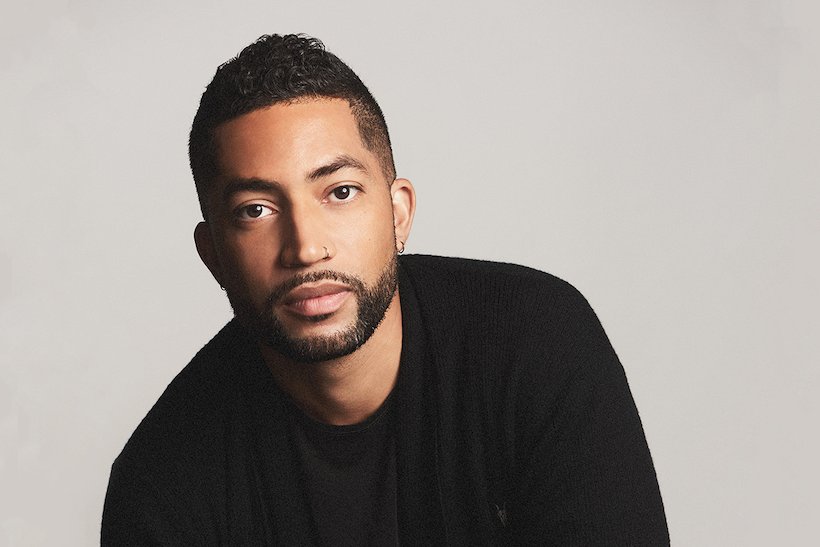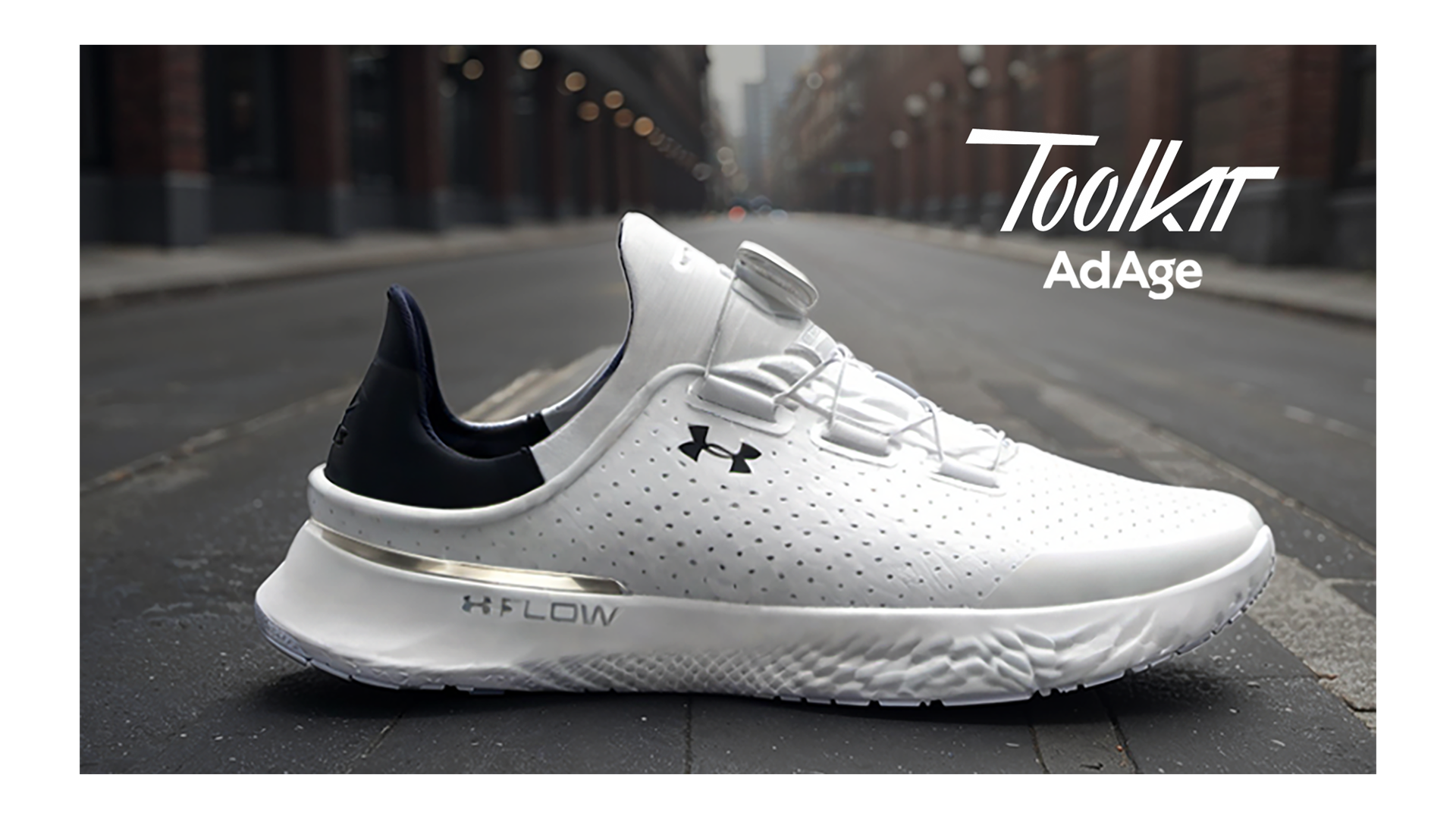
Walker, who was featured on Free the Work’s Super Bowl shortlist, worked with Ogilvy to direct Audi’s Big Game spot.
By Bailey Calfee
If Wes Walker were to look around at his fellow commercial directors in the ad industry, he’d be hard-pressed to find anyone who fits his Afro-Latin demographic.
“I’ve searched and searched, and there’s literally none of us,” he said. “There are no major directors of Afro-Latin descent at any level of influence, really, in the advertising industry.”
In 2023, Walker was one of the ten directors featured on Free the Work’s Super Bowl shortlist, which spotlighted diverse directors with the qualifications to work on a coveted Super Bowl spot.
This year, Walker is the only person from the list to make his Super Bowl directorial debut with Audi’s 30-second spot, which will air during Televisa Univision’s Spanish-language broadcast on Feb. 11. The spot features Audi’s electric vehicles including the Q4 e-tron, Q8 e-tron and RS e-tron GT and will premiere the night of the Big Game.
Having only worked in commercial directing for three years — and as one of very few diverse Super Bowl directors — his breakthrough is notable.
“Super Bowl spots are a top arena for our industry, and to be able to do this with Audi, a premium, really interesting brand that’s also doing something for the first time — reaching out to the Hispanic community with a Spanish speaking spot — was incredible,” said Walker.
The ad, titled What Drives Us, is fully in Spanish and will be promoted throughout the year on linear, streaming and digital platforms, according to a brand representative. Walker worked with his production partner Tool and Ogilvy, Audi’s creative agency of record, on the spot.
“It’s an honor to have a brand like Audi and an agency as talented and top [tier] as Ogilvy reach out,” said Waker. “You just sit back and you’re like, ‘Wow, there’s never really been anyone in my position doing this with my roots and background as an Afro-Latin director.’”
Walker shared what the experience was like, how he creates opportunities for diverse rising talent and why he thinks more diverse creatives should be given opportunities to work on luxury campaigns.
Working with Audi for its first Spanish-language spot
Walker’s past commercial work is grounded in identity, and his approach to directing Audi’s Super Bowl spot was no different, since the target demographic is made up of members of his community.
“I know who this segment is. This is me, my family and all the successful people that are, for the first time, coming into a level of financial stability that's allowing them to consider a very premium car like an Audi,” he said.
To ensure that Audi’s commercial stayed true to the client’s needs while being visually moving, Walker precut the entire spot “to understand how the transitions were going to work and how we were going to think through every single second of the film.” He pre-shot many visuals from inside the cars to make sure they reflected the experience of actually driving the car.
Walker described the experience of working with Audi and Ogilvy as “very collaborative,” adding that the teams respected his approach to directing.
Throughout the process, he noticed Audi’s dedication to authentically reaching the Hispanic demographic. “It’s beautiful to see a brand really take care with reaching out to a new demographic and doing it in a way that feels authentic and real,” he said.
“In any process, there are a lot of compromises and adjustments,” he noted. “With storylines I would pitch, some were taken and some were not, and that's the process of collaborating. Not every idea is going to be accepted, but many of them were.”
Walker’s past as an in-house director for brands like Tesla and TubeMogul, the latter of which was acquired by Adobe in 2016, has lent him the experience to understand the client’s needs and balance them with his own creative process. He counts this as a major reason why he’s been able to do such high-profile projects in the past three years with brands like Gatorade, Ford, Disney and Nike.
“I understand how many things need to happen inside of these 30 seconds,” he said. “Months and months of work have gone into the testing and the building of a beautiful spot.”
Democratizing the creative process
Walker noted he doesn’t gatekeep his creative process and regularly recruits other marginalized creatives to share in his successes.
“For every job, I bring on mentees of color and get them paid,” he said.
He also makes sure to introduce his mentees to the client and agency representatives on set, ensuring they are recognized for their professional successes. “I love riding for the culture and giving what I wish other people would have given me,” he said.
While directing the Audi spot, he brought in two Black women directors, Maya Table and Tayo Amos, and shared his entire process with them in order to “use this as an opportunity to open doors for other directors.”
His commitment approach to hiring diverse talent extends past his directorial mentees and into the entire crew onset: Walker’s entire production team were women and much of the crew were people of color.
As a diverse director, he noted, “When we lead these commercials, we hire diverse as well — and it was such a vibe on-set. We had fun, and everyone got to see themselves.”
Walker also ensures that everyone on set, down to the production assistants’s, feel encouraged and comfortable sharing their thoughts on the work they’re creating. All those involved in making commercials have seen so many sets and likely have their own ideas, he pointed out. “I truly believe that a great idea can come from anybody on the team.”
He also involves those outside of the industry, such as his family members, to get their opinions on whether the work feels impactful and reflective of their community.
“We all watch TV, so we all know when a commercial is no good or when it’s great,” he said. “We all watch movies, so we all know when something really makes us feel or not.”
This reflects his approach to creating commercial work, which aims to inspire a feeling among consumers rather than simply pushing a product on them.
“You have to make people feel seen, appreciated and understood in no time at all, which is the challenge with commercials — and why I love it,” he said.
On Free the Work’s impact and what still needs to be done
Being a part of Free the Work’s inaugural Super Bowl shortlist “put my work in front of a lot of people,” Walker said, taking an actionable step toward getting more diverse directors working on Super Bowl spots.
Beyond the shortlist, Walker noted that Free the Work reaches out to diverse directors in many ways to understand if they’re being treated well in the industry — to which the universal answer is, “not really,” he said.
“There’s a lot of performative action and virtue-signaling going on,” he said. While the 2020 Black Lives Matter movement called the industry to action, “now that last year was quite difficult for a lot of [businesses], things slowed and people did what they normally do, which is go back to their tried and true and most comfortable relationships, which are straight white males.”
According to Walker, in order for this to change, “it starts at the top, with the client and agency involving their own teams’ diverse perspectives.”
The Audi and Ogilvy teams, for example, were “made up of diverse, interesting, cool people coming from all different walks of life,” he noted, which “led them to building the bidding pool that they built,” with Walker among them.
The diversity and open-mindedness of the teams, he said, “rippled down to me and the choices I was allowed to make.”
Diverse creatives need to be able to see themselves in these high positions, he added, “and use our influence not to just aggrandize our own egos but to help other people and open doors.”
Although many brands and agencies are pulling back on their commitments to DE&I, the importance of reaching diverse audiences is increasing. The Hispanic demographic continues to increase in size and buying power, the need to authentically advertise to them is vital for businesses.
“We should have more Latinos doing car commercials at this level, we should have more Afro-Latinos directing commercials for luxury products,” he said. “We’re going to do it with a different sense of style and swag than anybody else.”
“When you have more diversity in the storytellers, you get different, better stories,” he added.

